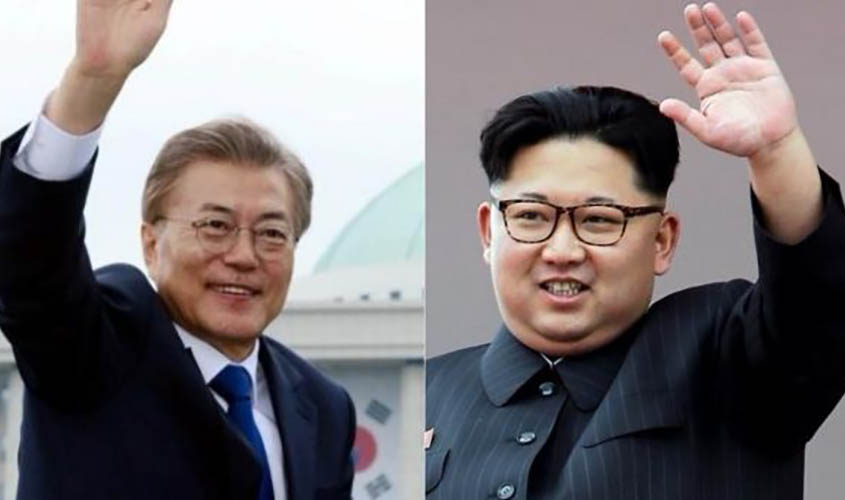The North has circumvented Beijing and left it in the lurch.
A four-hour long working dinner between the North Korean leader, Kim Jong Un and South Korean President Moon Jae-in’s envoys Chung Eui-yong, National Security Adviser, and Suh Hoon, National Intelligence Service director on 5 March resulted in the prospective summits between Kim Jong-un and South Korean President on the one hand, and between Kim and Trump on the other, perhaps in April and May, respectively. Though Trump apprised Chinese President Xi Jinping over phone about it, and Ministry of Foreign Affairs spokesperson, Geng Shuang welcomed the development, reiterating that “China will continue to play positive role” as regards resolving the denuclearisation issue through dialogue, however, there is a feeling in Beijing that its trusted ally, the North has circumvented Beijing and left it in lurch. The role of China, which has been instrumental in hosting the six-party talks as a “mediator” in Beijing, has been undermined.
Social media in China is abuzz with all sorts of speculation and finger-pointing towards China’s failure to see through the “opportunism” of the North, as well as “misjudging” the situation. Wang Mingyuan, editor of the Reforms Internal Reference has pointed to the “selfishness” and “unilateralism” of Korea throughout history, which resulted in the downfall of the Ming and Qing dynasties, incurring irreparable costs including the loss of territories, for example Taiwan in the wake of Sino-Japanese War of 1894 over the Korean issue. As recently as in the year 2000, the North also circumvented China, when the former sent Jao Ming-lu, the second in command in North Korea to the US and issued a North Korea-US Joint Statement. According to him, why North is doing so, is because it is attempting to break away from its security reliance on China. Some others believe that ever since China actively cooperated with the US to sanction the North, this played a key role in changing North Korea’s attitude. However, after the North and the United States started to establish direct contacts, the role that China could play will be very limited, for it stands totally “marginalised”. China’s current affairs analyst, Deng Yuwen, and Zhanf Bohui from Hong Kong Lingnan University hold such views.
The sudden twist in the events has caught China in a very precarious situation. On the one hand it has been participating in the sanctions, which has already invited the displeasure of its ally; on the other, it has also maintained the momentum of humanitarian supplies inside North Korea, for China doesn’t wish to see the collapse of the North, least to talk about the Korean unification and the US chipping in as a security provider. It has been reported by North Korea’s media that their supreme leader wishes to “write a new history of national reunification”. As a matter of fact, a security guarantee remains the precondition for the denuclearisation of the peninsula. If consensus builds around the issue, North Korea abandoning China as a security guarantee should not come as a surprise.
From North Korea’s point of view, it perhaps has completed a stage of missile and nuclear tests, thus wanting to come out of the present predicament, especially in the wake of sanctions. If this is the thinking in Pyongyang, the environment can deteriorate instantly. From the perspective of South Korea, the present President certainly would like to have improved relations with the North, however, since the US remains its security provider, it needs to take the US in confidence. Either way, it is a problem for China. If nothing comes out of the prospective summits, and if the North sticks to its gun about possessing nuclear weapons, China not only will have to accept the reality, but also the reality of others in the vicinity going nuclear. If the US emerges as the security guarantor in the wake of the US-North Korea normalisation of ties, China’s image as a “mediator” will further be diminished. And the last thing China would wish to happen is the unification of two Koreas. For the time being, the best China can expect is to be part of the dialogue, whether quadrilateral or the resumption of six parties. Undoubtedly, the task is uphill and the road long and uneven, but sometimes it’s the unconventional leaders who are capable of producing miracles.
B.R. Deepak is Professor of Chinese Studies at Jawaharlal Nehru University, New Delhi

